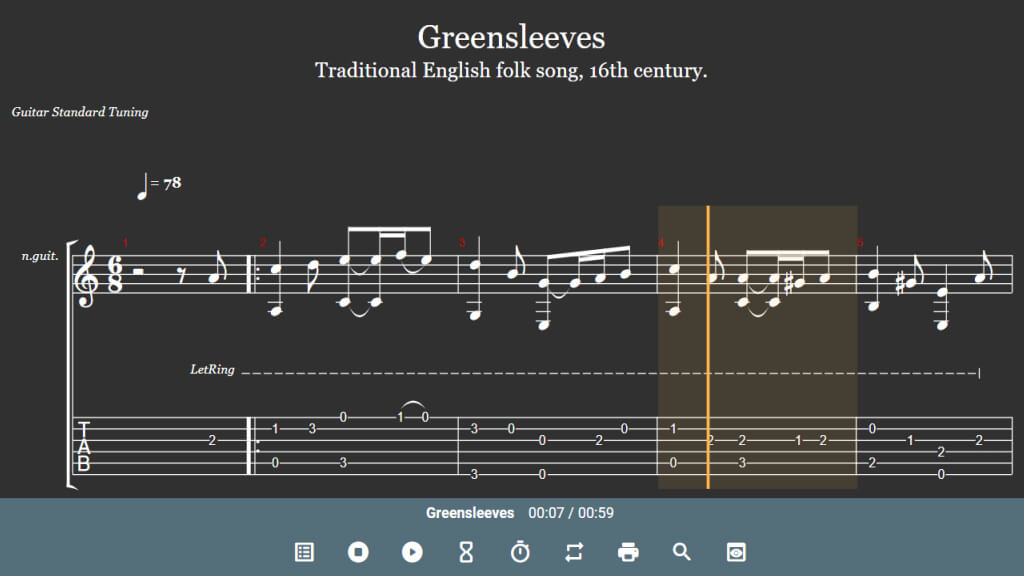“How long does it take to learn guitar?” — this is one of the most common questions every beginner asks. And no wonder: when you pick up the instrument for the first time, it’s only natural to wonder how much effort it will take to play your favorite songs or perform confidently for friends.
The internet is full of promises like “Learn to play in a week” or “Become a guitarist in 30 days”. But if you really want to understand the learning process and set realistic expectations, it’s important to ask yourself: what exactly do you want to learn and what will it take to get there?
This article won’t give you empty promises. Instead, we’ll share real examples, a sober look at the learning process, and an honest conversation about the factors that affect your progress. If you’re just starting out, this article will help you avoid frustration, choose your own path, and stay motivated. And if you’re already playing, you might recognize yourself in these examples or learn how to support friends who are just beginning their journey.
What Does “Learn to Play Guitar” Really Mean
Before you start wondering how long learning might take, it’s worth asking yourself honestly: “What does playing guitar mean to me?”. Your answer will directly affect how much time, effort, and focus you’ll need.
Beginners usually aim for one of these three goals:
- Playing simple songs for yourself — when you want to pick up the guitar, open a chord chart for your favorite song, and play it just for fun or in a casual gathering. A few strumming patterns, a couple of easy chords, and that’s enough to enjoy the moment. Clean sound and perfect technique aren’t the priority here — the key is that playing brings you joy.
- Comfortably playing on an amateur level — when you want to go beyond playing for yourself, develop your rhythm, start picking melodies, and try barre chords. This is the next step. It requires regular practice but gives you a lot more freedom with your music.
- Aiming for a professional level or advanced fingerstyle — if you dream of tackling complex solos, playing clean and confidently, studying harmony, improvising, or creating your own arrangements. This journey will take years of practice, but this is where the true magic of guitar playing unfolds.
And here’s what’s important: none of these goals is “better” or “worse” than the others. What matters is that your goal matches your personal desires and abilities. And the best part — you can always grow and change your goals as your musical journey evolves.
How Much Time Does Each Goal Take: Realistic Examples
Let’s have an honest talk about how long it usually takes to reach each of the goals we’ve discussed. No magic promises — just a clear understanding that everyone has their own pace and journey.
1. Playing Simple Songs for Yourself (1-3 Months)
If your goal is to learn basic chords and start playing simple songs, a few weeks of regular practice are often enough.
This usually includes:
- 5-7 basic chords.
- Simple strumming and picking patterns.
- Understanding how to read chord diagrams.
- Your first song played “from start to finish”.
Many famous hits, like “Perfect” (Ed Sheeran) or “Let Her Go” (Passenger), are built on simple chord progressions. These songs are often the perfect place to start. And even if the sound isn’t flawless yet, you’re already playing, and that feeling is unforgettable.
2. Playing Confidently on an Amateur Level (6 Months — 1.5 Years)
This stage requires more persistence and a systematic approach. Here, it’s not just about learning songs, but also about understanding your instrument on a deeper level.
At this level, your goals typically include:
- Learning barre chords and chord variations.
- Changing chords confidently in different rhythms.
- Picking out melodies and songs by ear.
- Playing in a band, with friends, or accompanying yourself.
- Understanding rhythm, time signature, and tempo basics.
After six months to a year of regular practice, many guitarists start playing songs with barre chords, confidently accompany others, jam with friends, or perform at small gatherings. Practicing at least 2-3 times a week helps you build skills steadily and see real progress.
3. Reaching an Advanced Level (3 Years and Beyond)
If your aim is to reach an advanced or even professional level, you’re embarking on a true musical journey. This path takes not just time, but deep immersion into the world of music.
At this stage, it’s essential to:
- Develop your technique and playing accuracy.
- Practice regularly, ideally, every day.
- Explore new styles, pieces, and techniques.
- Shape your personal musical taste and unique style.
Many famous guitarists started, like everyone else, with simple chords. But after years of daily practice, they were performing on stage, recording in studios, or competing in contests. And even after all those years, they never stopped learning and discovering something new.
Important: These timeframes are guidelines, not strict rules. Some people pick up chords quickly, while others need more time. The key is not to compare yourself to others — focus on your own progress and enjoy the journey.

Photo by David Vilches on Unsplash
What Affects Your Learning Speed: 5 Key Factors
Why do some people pick up the guitar in just a few months, while others feel like their progress is painfully slow? It’s not just about “talent”. In reality, several key factors directly influence how quickly you’ll learn to play.
1. Practice Consistency
This is arguably the most important factor. Guitar rewards consistency — not occasional marathon sessions once a month. It’s far better to practice for 20-30 minutes every day than to spend 3 hours on rare practice sessions. Regular practice builds muscle memory, boosts confidence, and helps you feel more comfortable playing. If finding time is a challenge, start with short daily sessions. Even 10 minutes a day is a step forward.
2. Clear Goals and Inner Motivation
Having a clear goal — like playing your favorite song or learning to accompany yourself — makes practice easier and more meaningful. Goals keep you motivated, help you push through tough moments, and prevent you from giving up after the first setback. Set goals with different timeframes — for today, for the week, for the month. For example: “Today I’ll master the Am chord” or “By the end of the week, I’ll learn the eighth-note strumming pattern”.
3. Choosing the Right Songs
One of the most common beginner mistakes is starting with something too hard. The result? Disappointment and the urge to give up. It’s much better to begin with songs that suit your current level. Early successes will boost your confidence and make you want to keep going. Songs like “Let It Be” (The Beatles) or “Stand By Me” (Ben E. King) are great starting points — simple chords, clear rhythm, and the joy of playing right from the start.
4. A Teacher or Reliable Learning Resources
Self-taught guitarists can absolutely succeed, but a good teacher or quality learning materials can help you progress faster and avoid common mistakes. A mentor or well-structured online course doesn’t just teach — it also keeps you motivated. If lessons with a teacher aren’t an option, look for trusted video tutorials, online courses, or guitar communities. And most importantly — don’t be afraid to ask questions.
5. Your Mindset and Attitude Toward Learning
The most crucial factor? Don’t turn learning into a chore. Play for the joy of it. Avoid comparing yourself to others, celebrate your small wins, and treat mistakes calmly — they’re both natural and valuable. Keep a lighthearted attitude. Even if things don’t go well today, tomorrow will be better. This is a journey that’s truly worth taking.
Learning Myths That Hold You Back: How to Avoid Common Traps
Learning guitar isn’t just about practice — it’s also about managing your expectations. Many beginners fall into common misconceptions that slow down their progress or even make them quit. Let’s take a look at some of the most widespread myths and how you can steer clear of them.
1. If I Don’t Get It Right Away, I Must Have No Talent
This is one of the most discouraging and useless beliefs. Guitar is a skill, and every skill takes time and patience to develop. Your fingers, ears, and coordination aren’t used to these new movements and that’s perfectly normal. Every guitarist — even the pros — started with shaky chords, buzzing strings, and awkward fingers. Mistakes aren’t a sign of failure. They’re a sign you’re learning.
2. Talent Is Everything
Some people may have a natural ear for music or great coordination. But in the long run, hard work beats talent. Discipline, regular practice, and the desire to improve are what truly make a guitarist — not just natural ability. Focus on what you can control: your practice, your persistence, and your curiosity. Talent without effort leads nowhere.
3. You Must Read Sheet Music to Play Guitar
Reading music is a fantastic skill, but it’s far from essential for beginners. If your goal is to play for yourself, learn chords, explore fingerstyle, or accompany others, chord diagrams and basic tablature are all you need to start. Begin with chords and tabs. If you decide to learn traditional notation later — you’ll have plenty of time for that. The key is: don’t let this myth hold you back from getting started.
4. If I Don’t Practice for Hours, It’s Useless
In reality, consistency matters more than long practice sessions. It’s better to spend 10-15 minutes a day on the guitar than wait for the perfect moment for a “real” lesson once a week. Short, regular sessions deliver better results over time. Don’t trap yourself in rigid expectations. Your goal is to make progress — not to turn your guitar practice into a source of stress.
5. I’m Too Old to Start Learning
Guitar isn’t a competitive sport. You can start playing at any age and that’s one of the greatest things about this instrument. It not only strengthens your hands but also sharpens your memory, focus, and hearing. Many adults — even those in their 40s, 50s, or 60s — pick up the guitar and discover genuine joy in playing. If you’ve been thinking about it — you’re already ready to start.

Photo by Joshua Rodriguez on Unsplash
Conclusion
The journey of learning guitar is always a story of discoveries, joyful moments, small victories and yes, inevitable challenges. And the real question behind “How long does it take to learn guitar?” sounds more like this: How much time am I willing to dedicate to learning?
Some people master their first chords within a few weeks. Others find their confidence after months of practice. And some keep learning for years and stay lifelong students. There’s nothing unusual or wrong about that. Even if it feels like progress is slow, those are the moments when you’re learning the most important skills: patience, self-awareness, and the ability to enjoy the process. And if you’re just starting out, remember this — you’ve already made your first step by picking up the instrument and deciding to give it a try. Everything else is a matter of time, passion, and your love for music.
If you’re inspired by the idea of growing as a guitarist, check out more articles on our blog: “Top 5 Mistakes Beginner Guitarists Make And How to Avoid Them” — learn how to steer clear of common pitfalls and enjoy playing from day one. “From Beginner to Pro: Stages Every Guitarist Goes Through” — an honest look at what lies ahead on your guitar journey.
The guitar can become a lifelong companion if you allow yourself to move at your own pace. And believe me, this journey is absolutely worth starting.














